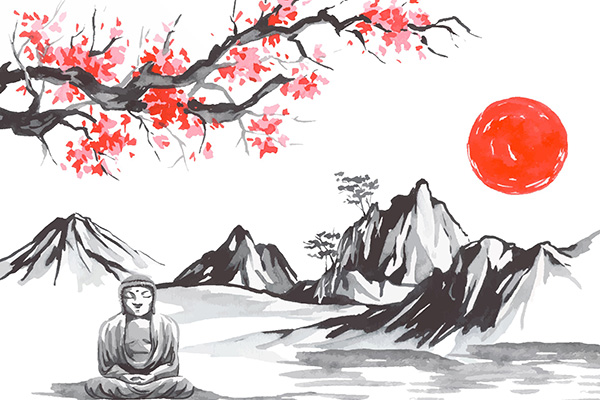self-awareness
Overcoming Your Inner Saboteur
 Have you ever wondered why people sometimes try to ruin an ideal opportunity in their life, or deliberately sabotage a promising relationship?
Have you ever wondered why people sometimes try to ruin an ideal opportunity in their life, or deliberately sabotage a promising relationship?
Even though I have done thousands of readings over the years, I cannot help but still be surprised when I work with people who are in the process of sabotaging a wonderful relationship or alienating a loving, caring partner. Reading for people of all ages and walks of life around the world has shown me that this behavior is relatively common.
Not all psychic readings are about difficult relationships, difficult or cheating partners, or boring marriages. Sometimes they are about perfectly wonderful relationships that one of the partners is doing their best to destroy!
In these relationships, the saboteur consciously or unconsciously creates a toxic scenario or behaves in a dysfunctional way that will ultimately lead to a breakup. For example, the saboteur will begin to find fault with their partner, subtly push them away, or find reasons to walk away from the commitment.
Relationship readings for self-saboteurs often begin with them saying something like: “Well, things are rosy now, but they always start out that way,” or “Knowing my luck, she’ll soon get bored with me,” or “To be honest, things are so good with him, I’m just waiting for the other shoe to drop!”
It reminds me of my grandmother, who was abandoned by my grandfather when my mother and her sister were very young. She used to say, “All men are gorillas!” I later realized that my mother had adopted the same mindset.
Working Your Way Up The Emotional Scale
 Is it not amazing how many different emotions we can experience? No one even knows for sure how many different human emotions there are!
Is it not amazing how many different emotions we can experience? No one even knows for sure how many different human emotions there are!
Over the years, psychologists and neuroscientists have proposed various models for categorizing and understanding human emotions. The highest total number of distinct emotions identified by a single model is found in the research of Alan S. Cowen and Dacher Keltner, who identified 27 distinct emotions. Their model is one of the most comprehensive in terms of categorizing a wide range of human emotional experiences.
A concept closely related to the wide range of emotions we can experience is that of an emotional scale, also known as an emotional spectrum or hierarchy. This idea involves categorizing and ranking emotions based on various criteria such as their intensity, positivity or negativity, and how they relate to each other.
There are several emotional scales that are used to help us better understand and navigate our emotions. There is Plutchik’s Wheel of Emotions, Russell’s Circumplex Model of Affect, David Hawkins’ Map of Consciousness and Abraham-Hicks’ Emotional Guidance Scale.
Emotional scales and models serve a variety of purposes, including therapeutic contexts, self-help, academic research, emotional intelligence training, spiritual growth and guidance, manifestation practices, and other esoteric and practical applications. They help people identify, categorize, and work with their emotions for improved emotional well-being and self-awareness.
Spiritual Practices To Improve Your Mental Health
 Mental health has become a critical focus for many in recent years. While traditional methods such as counseling, therapy, and medication are essential in addressing mental health issues, the mental health benefits of spirituality are often overlooked.
Mental health has become a critical focus for many in recent years. While traditional methods such as counseling, therapy, and medication are essential in addressing mental health issues, the mental health benefits of spirituality are often overlooked.
Everyone’s mental well-being is affected at some point by the challenges of modern life. It is common to feel out of balance when our world seems to be spinning out of control, or when it seems that we are not getting the things we most want in our lives.
Most people don’t realize that spiritual connection is essential to our mental health and facilitates well-being on all levels. Because mental health issues have such a low and heavy vibration, they make it difficult and sometimes impossible to feel the presence of God, Source, Spirit, the Divine in our lives.
But by working daily to establish a strong connection with your spirit guides and higher source, you are taking a powerful step toward freeing yourself from the grip of these inner demons and dark energies.
Spirituality in its various forms is a powerful way to connect with yourself and the world, fostering a deeper sense of inner peace and purpose for a more balanced and fulfilling life. Research clearly shows that various spiritual practices can significantly improve mental health. These practices offer complementary benefits to traditional mental health treatments, promoting emotional resilience, stress reduction, and overall psychological well-being.
Personally, I have found that spiritual practices such as prayer, meditation, and journaling give me greater access to guidance and support from the spirit realm and my guides. Our guides are a wonderful source of healing, guidance, and direction. Getting in touch with our guides can actually help us get out of a funk because they have the ability to set us free and empower us on every level.
Tarot Forecast June 2024: The Lovers
 This month the universe presents us with the The Lovers. This Major Arcana card predicts the energies of passion, choice, connection and relationships as the tone for the month ahead. The primary energies this month are harmony, balance and unity. The Lovers card represents a time of deep connection and self-discovery with yourself and others.
This month the universe presents us with the The Lovers. This Major Arcana card predicts the energies of passion, choice, connection and relationships as the tone for the month ahead. The primary energies this month are harmony, balance and unity. The Lovers card represents a time of deep connection and self-discovery with yourself and others.
The Lovers card is rich in symbolism, encompassing themes of connection, choice, and duality. It can represent romantic relationships, partnerships, or a harmonious balance between different aspects of the self.
This card usually symbolizes deep emotional bonds, love, and harmony in romantic relationships. It can signify the beginning of a new relationship, the deepening of an existing one, or the reconciliation of differences. It also represents the magnetic attraction and chemistry between lovers.
The Lovers card sometimes indicates instead an important choice or decision to be made. It emphasizes the importance of making choices that are consistent with one’s true self and values.
It can also represent moral dilemmas or ethical choices, encouraging us to follow our moral compass and make decisions based on integrity and truth. It can be a call to evaluate and realign with personal beliefs and values.
It also suggests duality and the balance between two forces, whether masculine and feminine, conscious and unconscious, or different aspects of one’s personality. It emphasizes the need for harmony and balance in relationships and within oneself. It’s about finding a balance between desires and responsibilities, emotions and intellect.
The Spiritual Importance Of Living Your Passion
 It is a sad fact that so many people in today’s modern world are dissatisfied with their lot.
It is a sad fact that so many people in today’s modern world are dissatisfied with their lot.
However, many of us allow this to happen quite easily because we have responsibilities, bills to pay, and so on. We tend to just go along with what life gives us and resist the change that would lead to a more passionate life.
In fact, sometimes we never even stop to think about what our passion might be, and sadly, we live less fulfilling lives as a result. Fortunately, this does not have to be the case.
I know that I myself have fallen into this category of people in the past, until I found where my true passion lies, which is helping other people through psychic readings and spiritual support. As a result, I have never been happier and you, dear reader, can do the same. It just depends on where your particular passion lies.
So, ask yourself, what do you really want to do with your life? Would you be more passionate about starting your own business than doing the job you have now, or are you particularly passionate about living your life in a certain way? If so, Spirit says it does not matter what other people think. What matters is what resonates with you and what makes you feel empowered and fulfilled as a human being.
Once you have determined where your passion lies (this is your focus), you need to develop a strong belief that you can fulfill this passion in your life and this mindset will be your driving force towards your goals. Many people stop at this critical point because they are understandably afraid of change. This is understandable, Spirit says, for it can be compared to stepping into the unknown.
The Meditative Art Of Sumi-e Painting
 As a spiritual advisor and artist, I’ve always been drawn to the ways in which art and spirituality intersect to offer pathways to deeper self-awareness and tranquility.
As a spiritual advisor and artist, I’ve always been drawn to the ways in which art and spirituality intersect to offer pathways to deeper self-awareness and tranquility.
One such path that has had a profound impact on my life is Sumi-e painting, also known as suibokuga or ‘ink wash painting.’ It is a traditional Japanese painting technique that uses black ink, typically in varying concentrations, to create brushstroke-based works of art.
Sumi-e is characterized by its minimalism, simplicity, and emphasis on capturing the essence or spirit of the subject rather than its literal representation.
Paintings often feature subjects such as landscapes, flowers, birds and other natural elements. Artists use various brush techniques to create different textures, tones, and depths using only black ink on absorbent paper or silk.
The art form has deep roots in Zen Buddhism, which emphasizes spontaneity, simplicity, and harmony with nature. Practitioners often meditate before painting to cultivate a clear and focused mind, which they believe enhances their ability to express the essence of the subject.
Sumi-e painting has had a significant influence on various art forms, including calligraphy and other East Asian brush painting styles. It continues to be practiced and appreciated for its timeless elegance and ability to evoke profound emotions with seemingly simple brush strokes.
